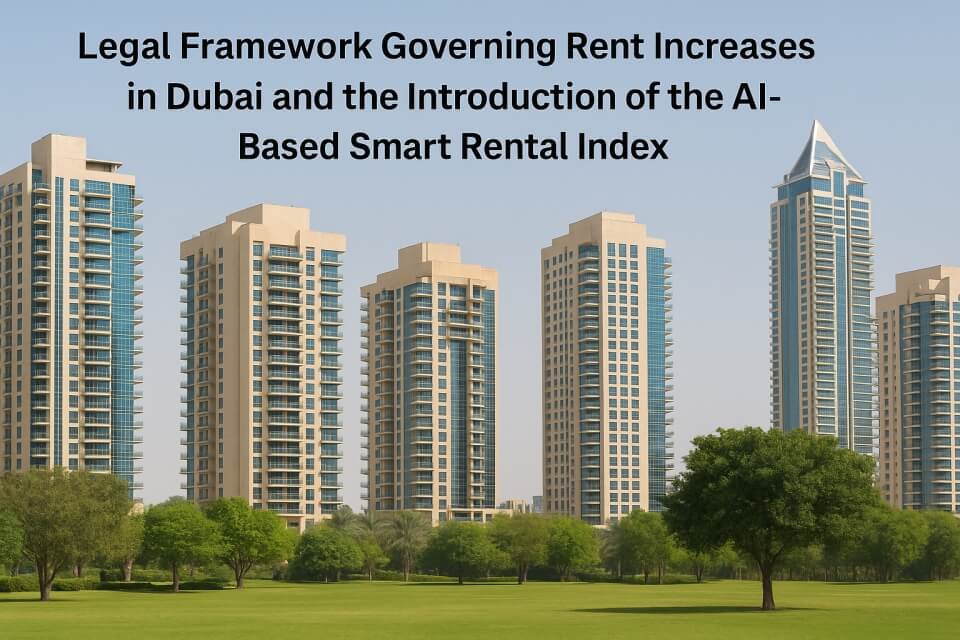Questions & Answers
What to do if the Offer & Deposit application has been rejected twice by the landlord to increase rent?
Dear Lawyers,
I filed 2 Offer & Deposit applications:
1. Notice & Rent Increase: The landlord gave a 90-day notice to an unregistered email that is not listed in the tenancy agreement. My Jan 2025 filing, based on the Dec 2024 RERA Index, showed no rent increase, but the landlord now claims a 5% increase per the updated RERA Calculator this year.
2. Rental Payment: To deposit/transfer rent.
Both were rejected due to the landlord’s nonresponse. However, the first installment was transferred via RDC & I provided the receipt. The landlord now demands the remaining payments, a renewed Ejari, & AED 420 admin fee (vs. the usual AED 265).
They also threatened with eviction since Ejari expired last month. I’ve offered to provide PDC or deposit the amount. They have asked me to follow up with RDC to ensure the 1st payment is transferred to their account. Since I completed the Offer & Deposit process, I prefer they initiate a preliminary case.
Could you please advise on the best course of action at this stage?
Dear.
The landlord may not request a rent increase more than what is determined by the RERA index.
Now you can choose between the following solutions:
(1) File a lawsuit to oblige the landlord to draw up a lease contract for the new period at the rent amount specified by RERA.
(2) Wait until the owner files a lawsuit against you, and then you submit the offer and deposit in the lawsuit.
Can you share the lease agreement you have with your landlord?
Based on the review of the provisions of the lease agreement regarding eviction, we can assist you further by providing you with potential legal solutions such as filing a rental a dispute case if you can give us some additional information such as:
1. Which Emirate is the lease agreement entered into?
2. Emirates ID
3. Email and phone number.
Please note that the landlord’s 90-day notice was sent to an unregistered email, making it invalid under Dubai rental laws.
Looking forward to your response.
Please feel free to reach out to us on our WhatsApp.
According to UAE law, the landlord must adhere to legal procedures when increasing rent, including using the registered email listed in the tenancy agreement.
If the increase is not properly supported, the tenant has the right to dispute it. As for Ejari, if it has expired, the landlord can request renewal, but eviction can only occur through legal procedures.
You can file a claim in court or request mediation through the Real Estate Disputes Committee.
For legal assistance and WhatsApp contact, feel free to reach out to us, as we specialize in such cases.
Dear K.,
Thank you for reaching out with your concerns. Based on the details you've shared, here is my advice regarding the issues with the landlord, rent payment, and notice discrepancies:
1. Notice and Rent Increase Dispute
The landlord issued a notice to an unregistered email, which may be invalid under UAE law.
The rent increase based on the new RERA index for 2025 may not apply to your tenancy, as your filing was based on the December 2024 index.
Action: Send a formal letter disputing the invalid notice, and if needed, file a RERA complaint.
2. Rental Payment and Ejari
The first rent installment was paid via RDC, and you have the receipt. Follow up with RDC to ensure the payment was properly processed.
The landlord is demanding an increased admin fee and threatening eviction due to the expired Ejari.
Action: Request clarification on the admin fee increase, and renew the Ejari to avoid eviction risks.
Initiate Communication with the Landlord: Send a formal letter addressing all the points mentioned above:
- Dispute the validity of the notice sent to an unregistered email.
- Confirm the payment already made via RDC with supporting evidence.
- Seek clarification regarding the admin fee and request a breakdown for the increase.
- Highlight your intention to renew the Ejari and avoid eviction.
- File a Case with RDC: If the landlord continues to make unreasonable demands (such as an increased admin fee, eviction threats, or refusal to renew Ejari), you may consider initiating a preliminary case with the Rental Dispute Center (RDC).
Since the landlord has not responded to your previous filings and is making conflicting demands, filing a formal complaint could be an effective next step to resolve the issue through legal channels.
Document Everything: Keep a detailed record of all communications with the landlord, including emails, letters, and payment receipts. This documentation will be important if the case escalates to court.
I recommend you initiate communication with the landlord and, if needed, proceed with filing a complaint with RDC to ensure that your rights are protected.
Please let me know if you require any further assistance in drafting formal letters, filing a case, or taking the next steps.
Best regards,
Mohammed Salah
Legal Consultant






